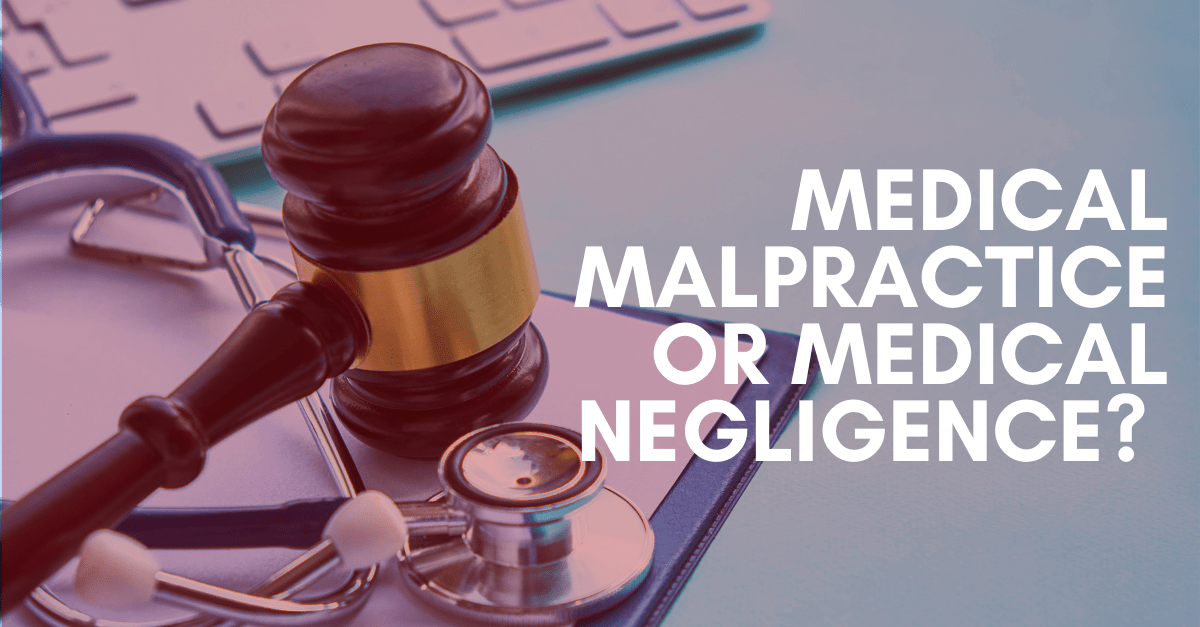There are a number of reasons one might sue a doctor or medical institution. Before proceeding it is important to understand the difference between medical malpractice and negligence. There are clear distinctions between medical negligence leading to injury and malpractice. In this article, we will be delineating the key differences between the two.
Malpractice vs negligence: What’s the difference?

The most important thing to note when comparing incidents of this unfortunate nature is intent. Negligence means the act was an accident. It was clearly a mistake or oversight, and not done on purpose. This, however, does not mean the culprit is without fault or responsibility. They are still accountable, it simply means the harm they caused was not deliberate.
Malpractice, on the other hand, involves some form of intent. At times the law also describes this as willful disregard. In such circumstances, the culprit is aware of the damage they could cause, yet they continue with their course of action.
How to claim medical malpractice
One can make a medical malpractice claim for a variety of reasons. Predominant among these factors is a deviation from the reasonable standard of expected care from a professional. Claims can be against a doctor, other healthcare providers, or even a hospital. The law holds professionals in the medical sector to a higher standard because the risk of injury is higher.
If one is filing a medical malpractice claim this means said deviation from the standard of care has caused injury or death. Nevertheless, it is important to note that just because there has been injury or death, this doesn’t necessarily mean there was malpractice. The success of any given procedure cannot be guaranteed, they are risky by their very nature. A case becomes malpractice when the standard is inferior to what can be reasonably expected.
What proof do you need to claim medical malpractice?
- Duty of care: All healthcare professionals have a duty to care for their patients up to a certain standard.
- Deviation from standard of care: This means when a doctor, or other healthcare practicioner, provide care beneath the standards of other practitioners with equivalent training and experience.
- Direct cause: Said deviation from the standards of care must be the direct cause of the injury or death.
- Damages: There must be proof that the individual has suffered damagaes due to the malpractice or negligence. The harm can be psychological and/or physical.

Here at Advantage Investigations we often work on cases of medical malpractice and negligence. If you find yourself in need of a licensed private investigator and their particular set of skills, please feel free to call us. Or simply click on this link to get in contact with one of our team members.










